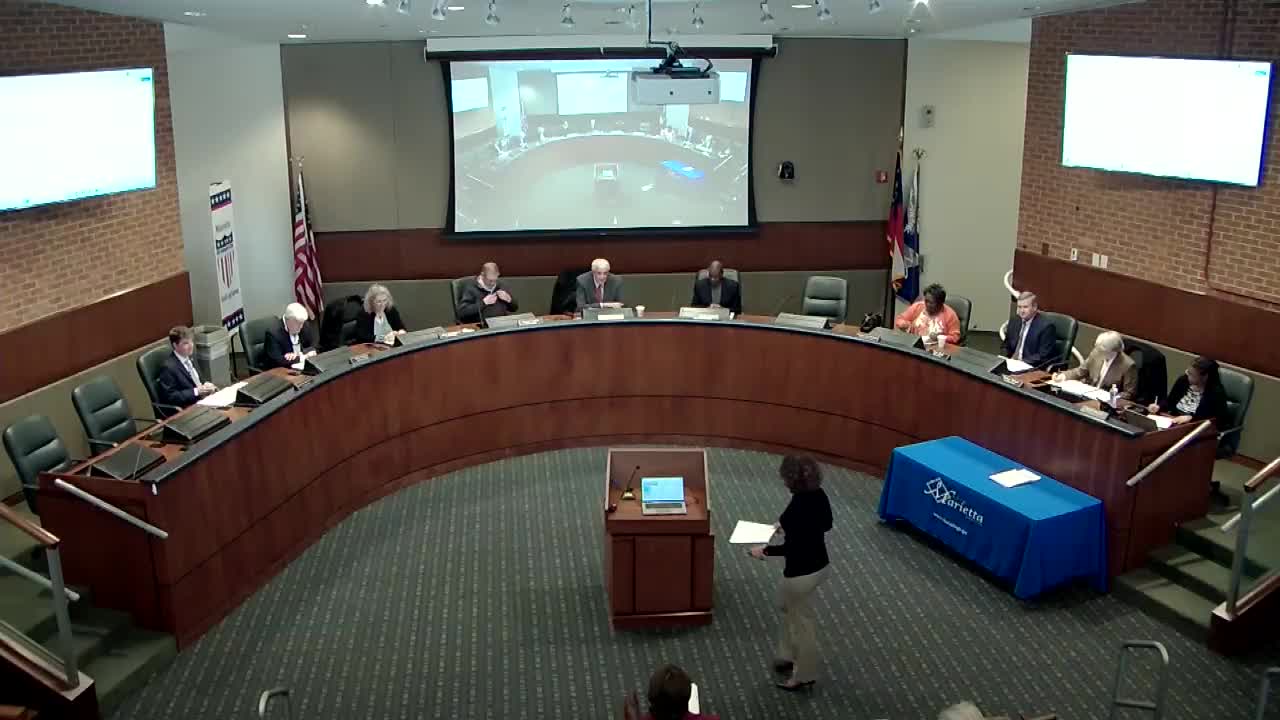Marietta board approves $50,000 short-term utility relief program for customers affected by federal shutdown and SNAP delays
Get AI-powered insights, summaries, and transcripts
Subscribe
Summary
The Marietta Power, Light and Water Board on Nov. 10 approved a $50,000 short-term assistance program to prevent service disconnections for customers affected by the federal government shutdown and delays in Supplemental Nutrition Assistance Program benefits.
The Marietta Power, Light and Water Board on Nov. 10 approved a $50,000 short-term assistance program to prevent service disconnections for customers affected by the federal government shutdown and delays in Supplemental Nutrition Assistance Program (SNAP) benefits.
Customer care staff presented two main options: one-time credits to cover past-due charges or short-term loans/forbearances that customers would repay over up to six months. "So we could set up a fund and give a one-time payment or credit for the amount of the past due charges so that the customer would avoid disconnection of service," the customer care representative said, describing program mechanics and documentation requirements.
Staff recommended starting with a $50,000 fund and setting an individual cap of $200, citing October data that placed the average delinquent bill at about $155. The board discussed alternatives including limiting eligibility to delinquent accounts, covering government employees who can show non-pay status letters, and SNAP recipients with proof of benefits. Board members and staff agreed to structure the assistance as a loan or forbearance to avoid violating local gratuity limitations. "If we do it as a loan, paid back over six months, we avoid the gratuity clause," a board member said during the discussion.
The motion approved by the board directs customer care to administer the program, with the $50,000 initial allocation and a $200 per-account cap. Staff said customer care will require documentation showing hardship tied to the shutdown or SNAP disruption and that the customer account be a Marietta utility account. Mister Rogers (customer care) confirmed he will administer the program.
Finance and staff discussed the accounting treatment and tracking mechanism for the program. Staff described the approach as a deferred receivable or liability account, not a direct cash grant: the utility will apply a credit or deferred payment to the customer account and then collect repayments over the agreed period. The board directed staff to set up the necessary accounting mechanism and return with implementation details as needed.
The motion carried on a voice vote.
The board did not specify an automatic advertising campaign for the program; staff warned broad advertising could inundate customer service and suggested using representative discretion to identify eligible callers and limit outreach. The program is intended to be temporary and targeted to customers in demonstrable need while staff monitor demand and the status of federal payments.
